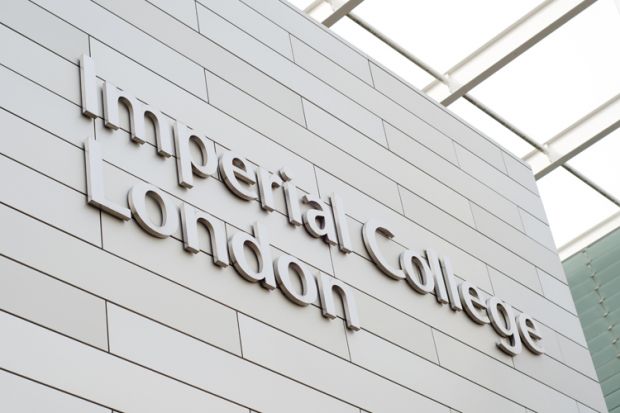Source: Smart7/Shutterstock.com
The recommendation follows an internal report ordered in the wake of the death of Stefan Grimm, formerly professor of toxicology in the Faculty of Medicine at the university, last September.
The academic had been told that he was “struggling to fulfil the metrics” of a professorial post at the institution and that he was under an “informal review process”. An inquest into his death was opened and adjourned at the West London District Coroner’s Court on 8 October last year.
The university instructed its director of human resources, Louise Lindsay, and Richard Thompson, senior college consul, to “review the relevant college policies and procedures”.
“Last year the College community was shocked and deeply saddened by the death of Professor Stefan Grimm,” writes Imperial provost James Stirling in a letter sent to Imperial staff today and seen by Times Higher Education.
“It should be emphasised that this review was not commissioned to investigate the circumstances leading up to Professor Grimm’s death; that is the proper purpose of the Coroner’s inquest that is yet to take place,” he adds.
Professor Stirling’s letter states that “competition and excellence make Imperial a highly demanding place”, and that the institution has “very high expectations of ourselves, of our colleagues and of the College”.
“At the same time,” he continues, “we have a duty of care to everyone who works at Imperial, and we are always looking for ways to improve our staff support services.”
Ms Lindsay and Professor Thompson submitted the conclusions of their review to the provost’s board on 27 February. All seven of the recommendations were accepted.
These are: an expansion of a programme to train volunteers to support people going on performance review; relaunching information on the employee assistance services to ensure it is current; giving regular HR training to managers; creating a guidance document for staff; asking managers to inform HR before commencing the informal reviews; creating a policy for performance management in the form of a “capability procedure”; and creating template documents for performance management, and ensuring all correspondence is reviewed by HR before being sent to a member of staff.
The report also notes concerns about “the application and consistency of approach in the use of performance metrics in academia and in the college”.
It recommends that the college undertake “a wider consultation and review of the application of performance metrics within Imperial College”, with recommendations to be considered by the provost’s board in the summer term.
“We will do this and will circulate further details of our approach in due course,” Professor Stirling writes.
“I believe that implementing these recommendations will make a valuable contribution towards creating the culture and environment in which everyone understands what is expected of them, we support those striving to meet those expectations, and all are able to perform to their best.”
Ms Lindsay and Professor Thompson’s full report is available online.
Register to continue
Why register?
- Registration is free and only takes a moment
- Once registered, you can read 3 articles a month
- Sign up for our newsletter
Subscribe
Or subscribe for unlimited access to:
- Unlimited access to news, views, insights & reviews
- Digital editions
- Digital access to THE’s university and college rankings analysis
Already registered or a current subscriber? Login




